Colleen Earp: Camping, conservation, and chickens
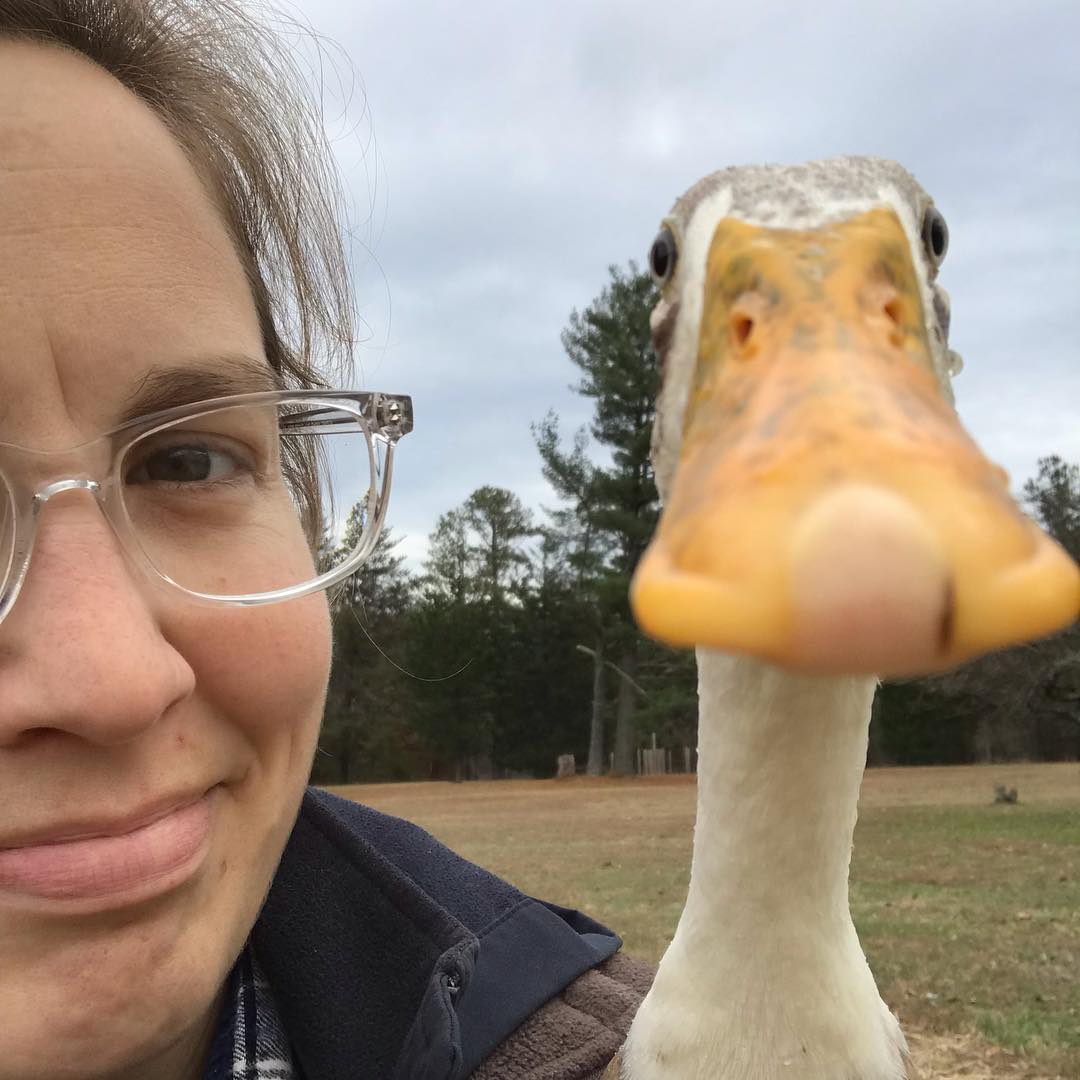
Student Spotlight
BY EMMA NORTH
Colleen Earp has taken her ministry beyond the pulpit and out into God’s creation. She has found a way to combine environmental conservation with theological education and take a faith based approach to saving our planet.
Earp is a Union Presbyterian Seminary student in her final year of the Master of Divinity program. “I like to call this year the bonus year, or the victory lap year, because I’ve been working this whole time and it took me a little extra time to finish,” Earp said.
She has been involved with Presbyterian camping ministry for a long time, having previously worked at Johnsonburg Camp and Retreat Center in New Jersey and Feliciana Retreat Center in Louisiana. “Every time I think I’m going to retire, I feel called back to camp,” said Earp.
When she moved to Richmond with her husband she began working at Camp Hanover for the Presbytery of the James as the Director of Youth, Environment, and Service Ministries.
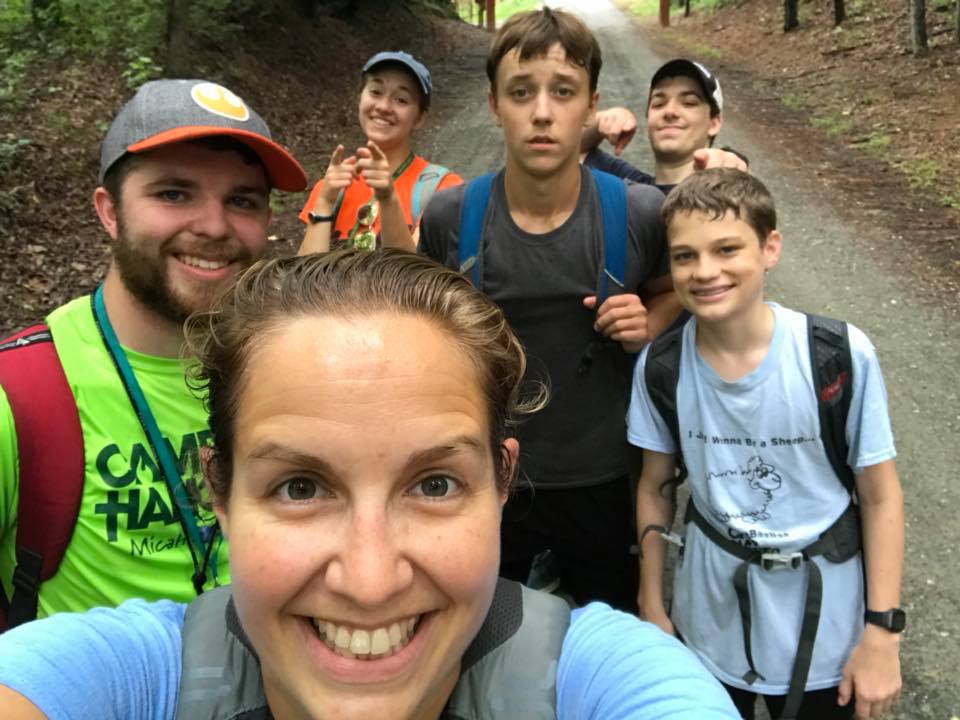
Earp took a group of Camp Hanover campers to hike the camp’s longest trail after they expressed interest in trail maintenance. Their fun but tiring hike took them over steep hills and through muddy wetlands.
With her new home in Richmond only a few miles down the road from Union she could not deny that seminary was something she had been thinking about for a while. “I needed the theological vocabulary to explain the connection between the environmental work that was so important to me and my faith,” Earp said. At Union, she has been able to be part of a community with people studying theology for numerous reasons. She is looking to bring ministry to people in a way that isn’t pulpit-orientated by continuing with camping ministry. “It’s been really good to be in community here and to see how many different ways so many people are excited about doing ministry,” Earp said. She is seeking ordination after finishing her M.Div., hoping to serve at a camp as her validated ministry.
Earp first made this connection between environmental work and faith while working as a Presbyterian Young Adult Volunteer (YAV) in New Orleans. She was there doing wetlands conservation. She planted trees and grasses to help recover damaged areas and educated mission groups that were doing housing projects in the aftermath of Hurricane Katrina. Her light bulb moment was realizing “God also likes trees, the work I was doing was ministry,” said Earp. “Even if it wasn’t necessarily in a pulpit, or in a church… being out in God’s creation was a way of doing ministry.”
A personal interest is volunteering with the Presbyterian Peace Fellowship. “Our environment includes people, so our peacemaking needs to happen with the earth and for the earth, and for all the people on the earth,” Earp said. She has gone to Standing Rock, performed environmental policy work within the church, and combined conservation and peacemaking in a lot of her work.
Her role at Camp Hanover fills a lot of different needs for the camp and presbytery but also includes the environment in ways they haven’t before. She runs youth programming, manages service projects, and heads environmental programs at the camp and the presbytery. During summer camp, Earp is focused on nature education at camp.
Earp helps Camp Hanover raise and care for animals every summer. They hatch chicks at the beginning of each summer and hatch ducklings during the middle of the summer. Camp Hanover also has six goats and, at one point, a dog who also inhabited the goat pen.
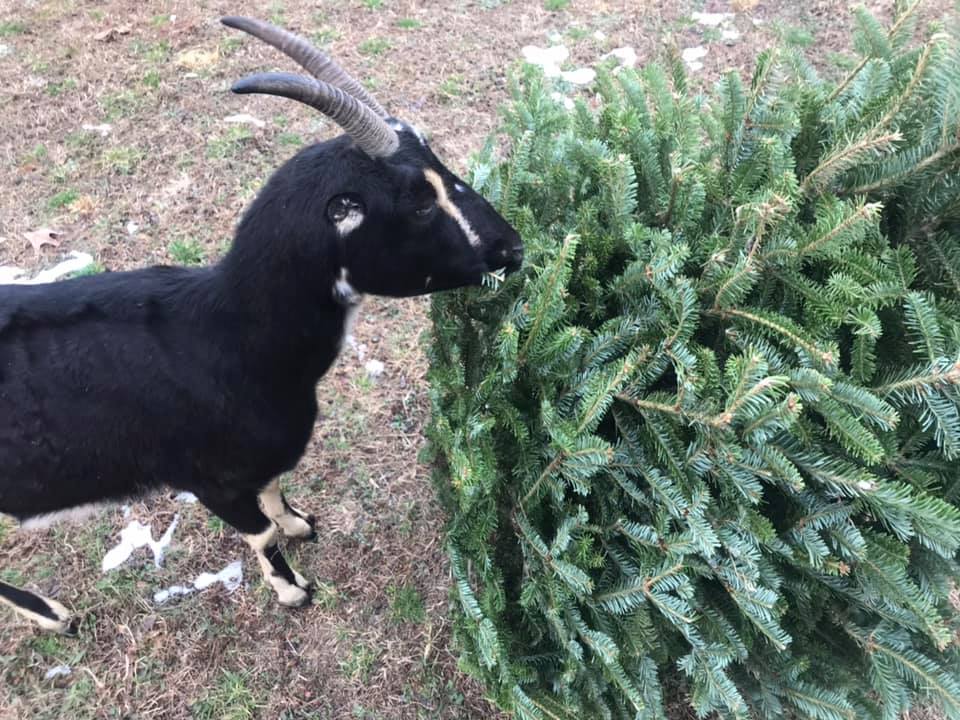
One of the Camp Hanover goats enjoying a delicious Christmas tree. The trees are donated after Christmas for the goats to snack on.
While Earp says the chicks started off as an introduction to taking care of something small the experience became even more spiritual than expected. The campers sit as still as possible to get the chicks to fall asleep in their hands. “It has become a contemplative and meditative experience where all the kids just sit really quietly and love this little creature,” said Earp.
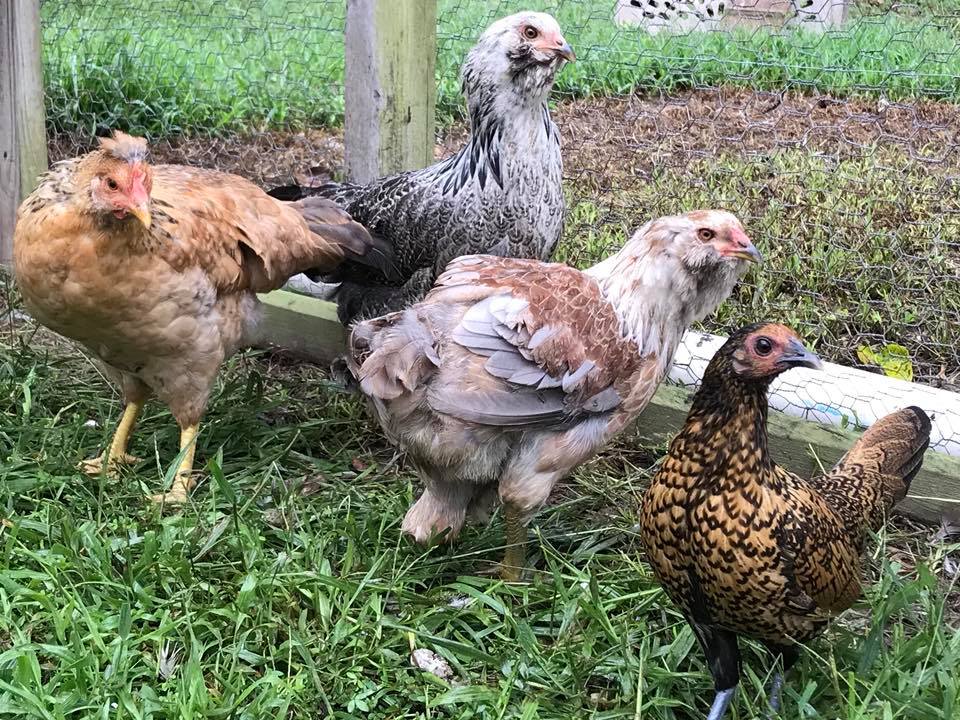
The chicks hatched every summer continue to live Camp Hanover for their adult lives.
Ducks are a completely different lesson. They are too wiggly for the kids to hold. Instead, Earp holds a “duckling swim practice” with the campers as their “lifeguards”. Ducks aren’t born with their swimming skills and have to be shown the water. Last summer they hatched four ducks and when the fourth duckling was struggling to hatch, Earp helped her break out of the shell.
Fourth Duck, as she has been affectionately named, has a crooked neck and doesn’t look quite like the other ducks. Earp says Fourth Duck has become a great lesson for campers. Initially they will point out that this duck is a little weird but over time it’s obvious she is the leader of the other young ducks. “The other three wouldn’t do anything else without Fourth Duck,” said Earp. “She led them to food for the first time, and she lets them know when it’s time to play and time to sleep.”
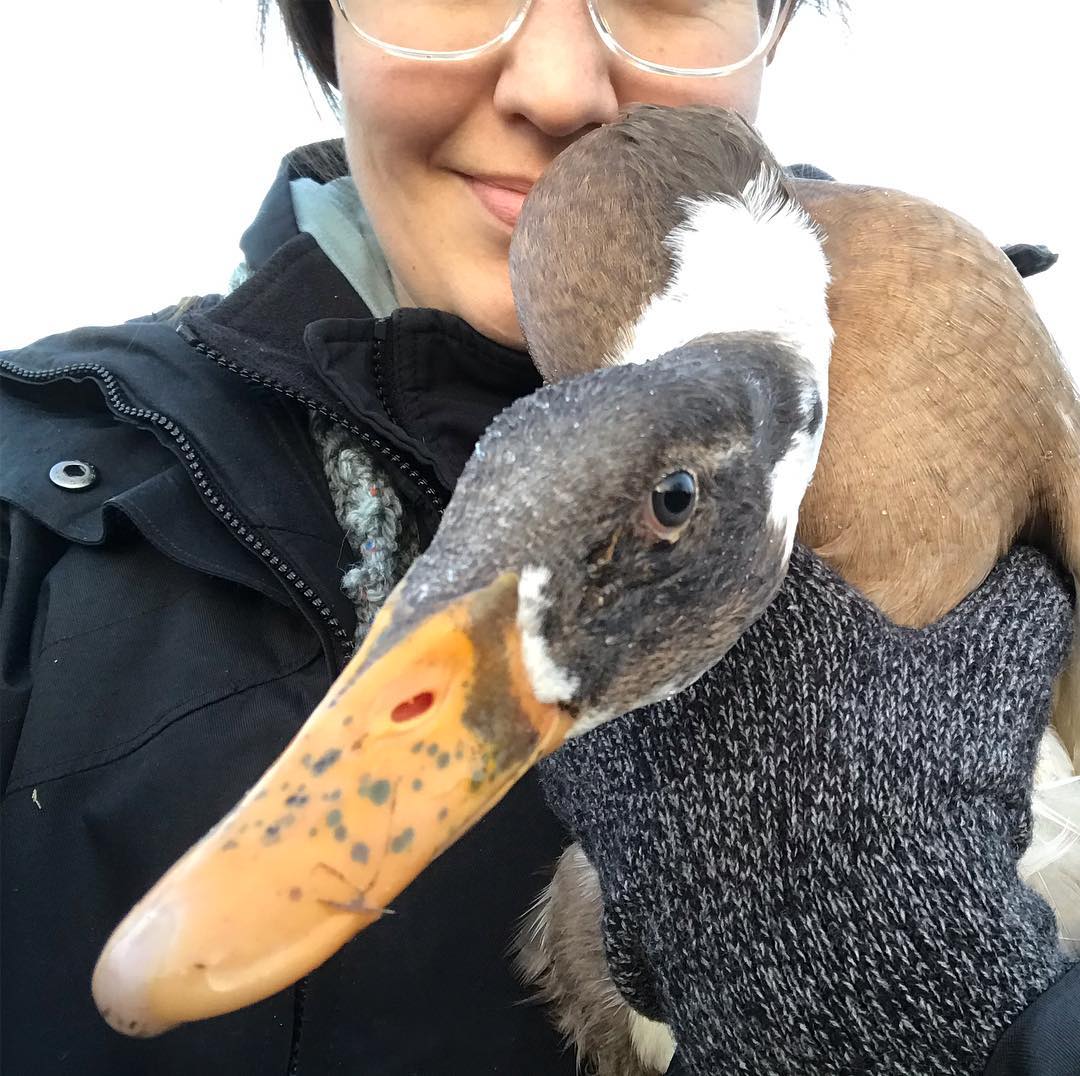
Earp with Fourth duck. Fourth duck was born with scoliosis and has become very popular around Camp Hanover.
Her unique role at Camp Hanover requires a lot of different things all the time but Earp has learned a lot about flexibility over her years working at camps. She hopes to continue working in camping ministry and stay within the network of Presbyterian camps. The world of outdoor ministry is unique and allows for connections to God in different ways. “I think a lot of people step outside and can at least in some way feel part of the creation around them,” said Earp. “There is this very real relationship between people and the planet we live on.”








